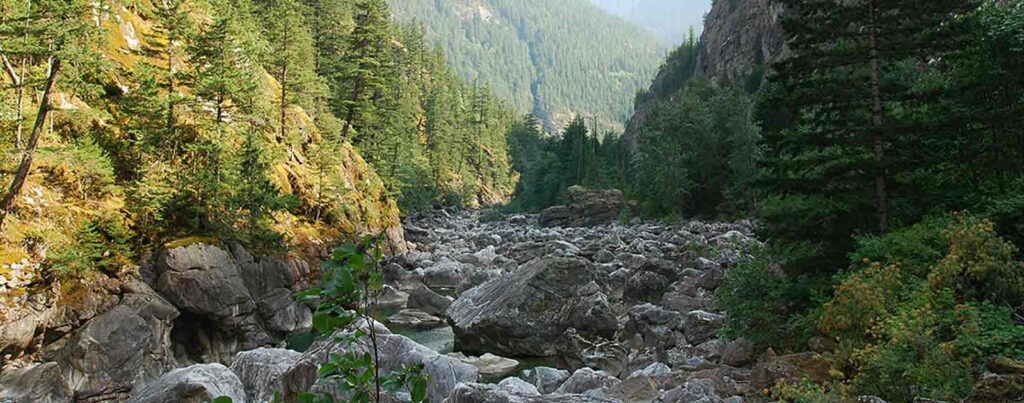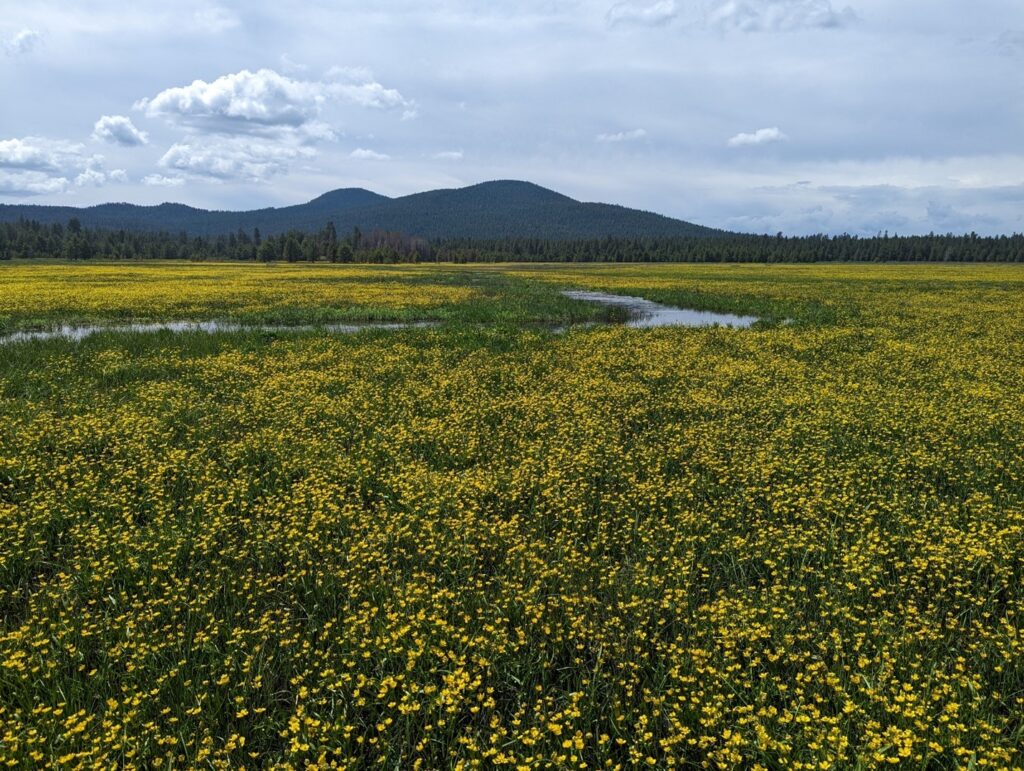Hydropower Doesn’t Need Any More Loopholes
A bill pending in the U.S. Senate would make the hydroelectric industry and the Federal Energy Regulatory Commission into modern-day Robber Barons.

This post was originally discussing Senate bill S 1236. Currently the House Committee on Energy & Commerce voted to add an amendment to the energy bill [HR 8] that accomplishes the same goals with the same problems.
A bill pending in the U.S. Senate would give the hydroelectric industry and the Federal Energy Regulatory Commission the kind of unconditional authority more akin to what the Robber Barons enjoyed in the late 1800s, than to what reasonable people might expect today.
Consider the last time a plan like Senate Bill 1236 was hatched. It was 2005. If anyone wonders how, during the last decade, a million new gas wells got drilled while people’s water supplies were fouled, streams depleted, sewage plants overloaded and air polluted, look no further than the “Halliburton loophole” — a Dick-Cheney-greased act of Congress. That Bush-era law exempted the gas industry from regulations that otherwise apply to the injection of undisclosed toxins into groundwater.
Now, with Congress leaning in its favor, the hydropower industry wants to ensure its share of fracking-style freedom. Proposed by Alaska Republican Sen. Lisa Murkowski, the so-called Hydropower Improvement Act of 2015 would exempt the industry from long-standing laws that protect rivers and streams from pollution.
Under the guise of promoting renewable energy, the bill would eliminate the ability of fish and wildlife agencies to require compromises when those public resources are imperiled. It would restrict the authority of the Environmental Protection Agency and the states to uphold accepted standards for pollution, temperature, and flow under the Clean Water Act and other statutes, and make sure that they are not violated. The bill would limit citizen involvement and appeals when members of the public, including local governments and Indian tribes, are concerned about their rivers, jobs and communities. It would dispose of due process in investigation, review and negotiation, giving sole authority to the Federal Energy Regulatory Commission, whose mission, political culture and history is unabashedly to increase hydropower production.
Because this measure slashes virtually all ties of hydro-proposals to environmental regulations, it makes you wonder about its sponsors’ boast that they are ensuring “clean” energy. If this bill is so great for the environment, why does it eliminate environmental reviews?
Clean energy sounds good, and some hydropower plans pose little conflict with other public values. But many other hydroelectric proposals come with sticky strings attached. Dams that are built for hydroelectric production flood canyons, valleys, forests, rivers and homes. The diversions to generators dry up rivers needed by fish, including our legendary salmon in California and the Northwest. Power production alters the schedule of flows, so that floods get released during one hour but are turned into trickles during the next, leaving fish either flushed out or high-and-dry. Hydropower development can also warm rivers at a time when temperature pollution is one of the most pressing problems for surviving fisheries and endangered species.
This unnecessary act of Congress would abandon a time-tested process of cooperation and negotiation that for decades has led to better hydroelectric production. For example, on the North Fork Feather River in California — otherwise an exquisite stream of the Sierra Nevada — hydroelectric plants for years dried up channels and flushed flows so erratically that they endangered the lives of anglers. After all sides recognized their responsibilities and the need to compromise, the flows were revised to produce power while sustaining other uses of the river. The Feather has since become a recreational hotspot that fuels the local economy.
On the Deschutes River of Oregon, salmon and steelhead that had been unable to reach their spawning grounds since 1958 (despite official state objection) are on their way again, thanks to an agreement between the power producer, Indian tribes and resource agencies. Everyone will benefit.
At the Yuba River in California, the Chelan in Washington, the Bear in Idaho, and dozens of others throughout the country, agreements have been peacefully and economically negotiated. These better outcomes include laws like the Fish and Wildlife Coordination Act that gave citizens and public agencies some say in the fate of our public waterways.
The Association of Fish and Wildlife Agencies, representing agencies in all 50 states, opposes this measure — deceptively called “hydropower regulatory modernization” — as a giant step backward. Our laws governing hydropower are working well. Legitimate power producers are doing a good job. We don’t need to pander to those who aspire to become Robber Barons in our own time.
What you can do
Help stop this dirty energy bill from happening. Tell Congress to oppose this hydropower bill that would let dams be operated without the safeguards of modern environmental laws. »




